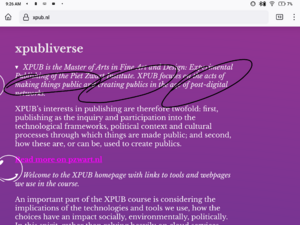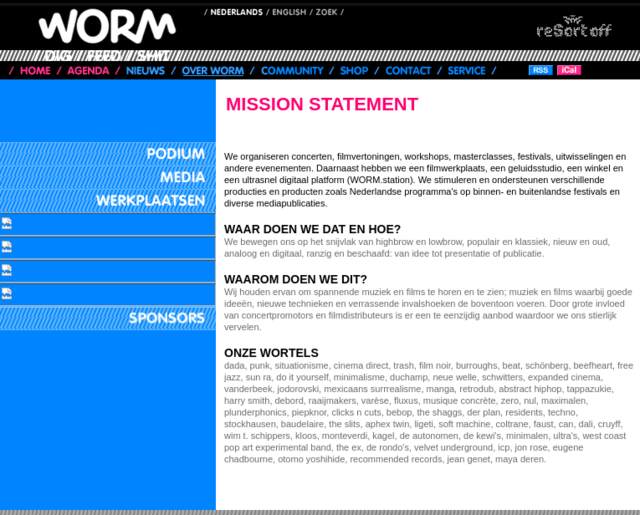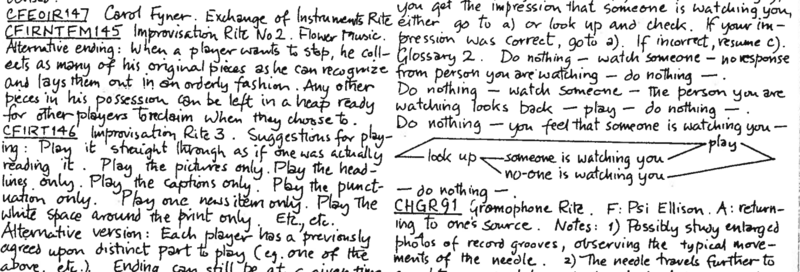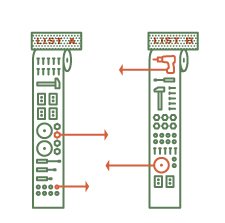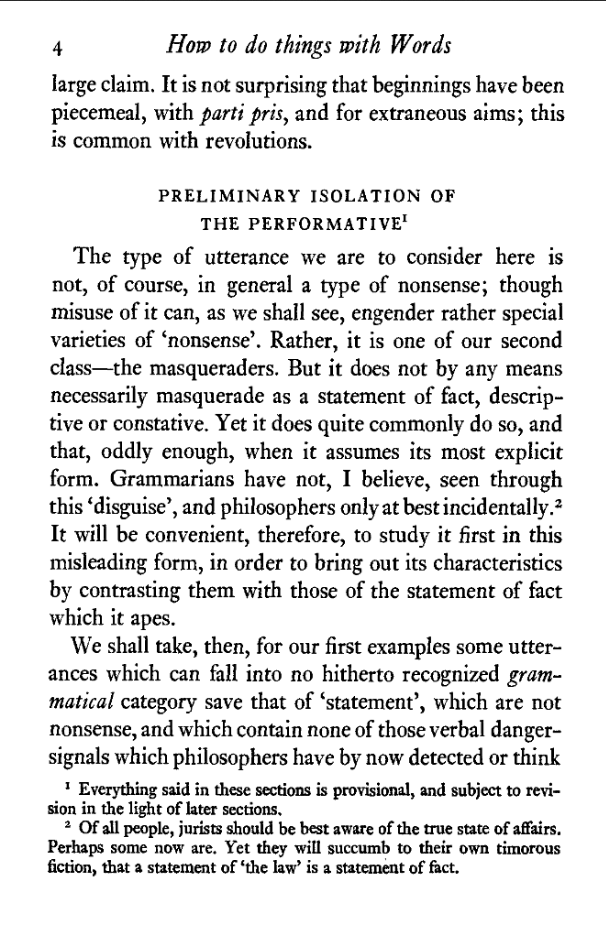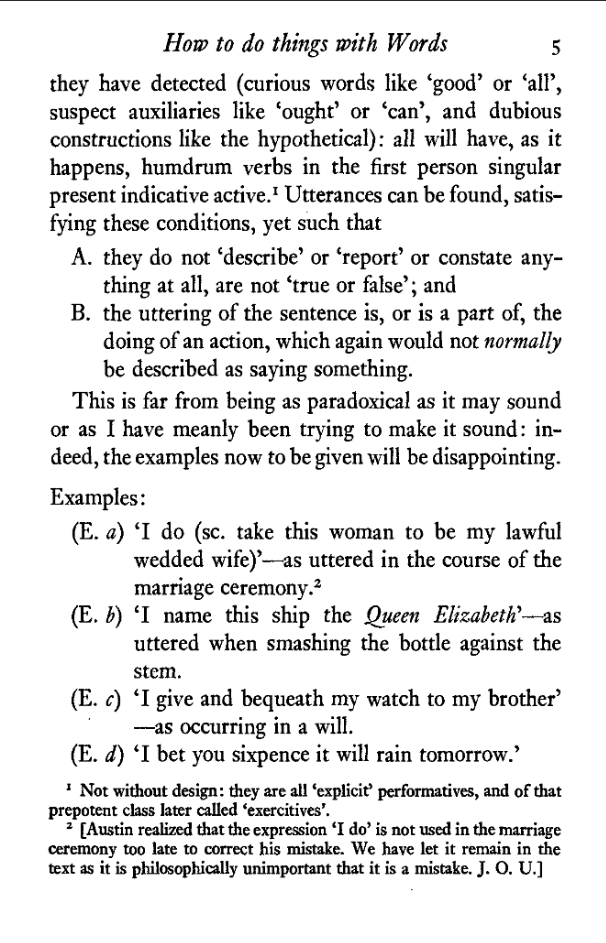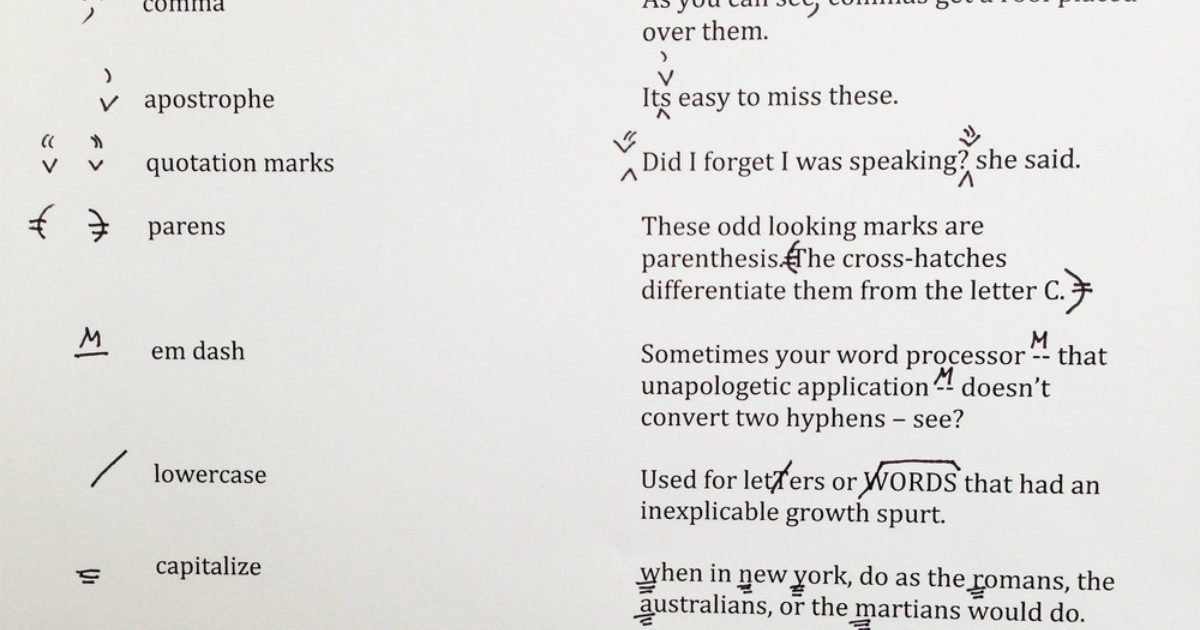Radio WORM: Protocols for Collective Performance - Week 2
An introduction to Radio WORM: Protocols for Collective Performance
XPUB
XPUB is the Master of Arts in Fine Art and Design: Experimental Publishing of the Piet Zwart Institute. XPUB focuses on the acts of making things public and creating publics in the age of post-digital networks.
XPUB’s interests in publishing are therefore twofold: first, publishing as the inquiry and participation into the technological frameworks, political context and cultural processes through which things are made public; and second, how these are, or can be, used to create publics.
Source: XPUB
- XPUB/Media Design + WORM have worked together in the past
WORM
WORM is the ultimate test environment for alternative art production, experimental ways of living and non-academic knowledge development. We are a network organisation at the intersection of (popular) culture and (performing) arts, fueled by an abiding interest in all the inspiring, beautiful, urgent, vital, raw, unruly and / or crazy shit that our fellow human beings come up with. We do not see the chaos that comes with it as a problem; rather we use it as energy for action.
Radio WORM
- Ash Kilmartin
- Lukas Simonis
- Lieuwe Zelle
Radio WORM is an online radio platform at the heart of WORM Rotterdam. Our studio hosts audio production of all descriptions, with over 80 resident shows as well as a shifting schedule of one-off events, mini-series and special guests.
Sound art, experimental music, interviews, mixes, informal reporting and in-depth talk-based series all find their place here: we’re always looking for what doesn’t fit anywhere else.
After nearly a decade’s absence, Radio WORM (Mark 2) came into existence during 2019, when Lieuwe Zelle and Lukas Simonis began broadcasting from the WORM office. After COVID struck, a small crew of broadcasters moved to the Pirate Bay booth, where the radio service has since expanded with an ever-growing list of shows.
source: https://radio.worm.org/
Protocols for Collective Performance
The project described here is a second iteration of a course first run last year, Radio Worm: Protocols for an Active Archive. This iteration called Protocols for Collective Creation, and will run from September to December 2024. The formats will again be a weekly live 2 hour radio program, and a single in-person event, or “public moment” tentatively planned for late November 2024. The course will be developed and run by tutors of XPUB, supported by WORM staff, and will be followed and activated by the group of 16 incoming first year XPUB students. The idea is to produce and maintain a podcast feed of materials related to the program during the duration of the 3 months. The format of the live event is described further below in the Communication Plan. XPUB will be responsible for documenting activities related to the course, and in working with WORM for possible inclusion within their network (for instance working with Ash on materials that could be part of WORM’s Mixcloud channel).
Protocols
...Protocol is not a new word. Prior to its usage in computing, protocol referred to any type of correct or proper behavior within a specific system of conventions. It is an important concept in the area of social etiquette as well as in the fields of diplomacy and international relations. Etymologically it refers to a fly-leaf glued to the beginning of a document, but in familiar usage the word came to mean any introductory paper summarizing the key points of a diplomatic agreement or treaty.
At the core of networked computing is the concept of protocol. A computer protocol is a set of recommendations and rules that outline specific technical standards. The protocols that govern much of the Internet are contained in what are called RFC (Request For Comments) documents. Called “the primary documentation of the Internet,” these technical memoranda detail the vast majority of standards and protocols in use on the Internet today.
... Other protocols are developed and maintained by other organizations. For example, many of the protocols used on the World Wide Web (a network within the Internet) are governed by the World Wide Web Consortium (W3C). This international consortium was created in October 1994 to develop common protocols such as Hypertext Markup Language (HTML) and Cascading Style Sheets.
...Yet instead of governing social or political practices as did their diplomatic predecessors, computer protocols govern how specific technologies are agreed to, adopted, implemented, and ultimately used by people around the world. What was once a question of consideration and sense is now a question of logic and physics.
Source: Introduction, pp 6-7, Protocol: How Control Exists after Decentralization, Alexander Galloway (2004)
Protocols (category)
Collective
- Wiki as infrastructure for collective work.
- Roles of working (and changing of roles).
- Use of rites, the example of Scratch Orchestra, Nature Study Notes
See also Creating publics.
Free software
Using and inspired by existing F/LOSS (free/libre open source software) but also things like Wikis & git where sources and versions are archived and distributed.
In discussions of Free software, you may hear of four freedoms:
- The freedom to run the program, for any purpose
- The freedom to study how the program works, and adapt it to your needs. Access to the source code is a precondition for this.
- The freedom to redistribute copies so you can help your neighbor.
- The freedom to improve the program, and release your improvements to the public, so that the whole community benefits. Access to the source code is a precondition for this.
sources: aa presentation (2018), gnu philosophy
Licenses
The GPL was created by Richard Stallman in 1983 and adopted by free software developers. This licence unambiguously guarantees the right to use a computer program free from any restriction (the program may be used for any purpose), the right to study (we can learn how the programme works), the right to copy, modify and distribute copies free of charge or commercially. The GPL implies a "genealogy". To understand the meaning of the word "genealogy" in this context, we need to look at the mechanism governing copyleft within the framework of the GPL. Copyleft is not a negation of the author’s rights; rather it is a reformulation of the way they are applied. It is a rerouting of the author’s rights. Because I am the author of a work, I can convey greater liberties to my users under contract than the law awards them by default. As Florian Cramer [6] points out, the word "licence" comes from the verb ’licere’ meaning ’to authorise’. In order to authorise the additional uses of a production, one needs to be its owner. And in the field of intellectual property, this means being the author (or possessing rights equivalent to those of the author). These additional rights are attributed with one sole condition: that the same freedom is guaranteed with copyleft for any work deriving from it. One cannot place a work under copyleft if one does not own the rights (a work cannot be "laundered") and one cannot restrict the usage authorisations which have been awarded to a free work, either for that specific work or for the consequent works.
TODO: Include Nicolas's quote for LR See: CCInContext
The free and open-source license adds a context to the digital version, a genealogy, a dialogue between the producer and the user. The user can become a producer if s/he wants to and transform the object. Programmers, artists are inspired, use the work of other artists and programmers. We are all situated in a context, a genealogy, a history.
Laurence Rassel, in "I don't remember the title of the work", Time has Fallen asleep in the Afternoon Sunshine, ed. Mette Edvardsen et al, 2019, p. 278
Rotation of roles
- 3 hosts
- 1 producer
- 1 channel operator or interface
Rotation of roles each week
Performance
Melanie Sehgal, Looking back and not behind. On the concept of Performativity
Austin + Derrida = Butler
Performance (Austin)
Performance (Derrida)
For Austin we justhave to confine the context and analyse it to understand the transformativepower of the performative. Derrida is very critical of this idea, that the context issomething external to the sign, something that you can draw a line around.
Meaning for Derrida exists only in between. That’s why it can never beabsolutely present. Speaking, like writing, is always repetition and therefore it isalways referring to a non-present context. To define the context of a speech actis for Derrida impossible: contexts are always open, unconfined.So where does the performative power of a speech act for Derrida comefrom? It stems from the just described power of every sign to break with onecontext and work within another context. The force of performatives is theirmechanisms as signs.
The power of a sentence or a sign to act is inherent to its being a sign.So for Derrida every sign, every sentence is performative. In contrast to Austin he gives a systematic, linguistic explanation of Performativity, but his open contexts stay somehow unspecific.
Performance (Butler)
If speaking is doing and doing is (following Foucault’s model of power)always power, then speaking, language is itself powerful and normative. Power for Butler is the power of discourse. The constitution of a subject for example is not an abstract universal process, but through the individual name (like in the example of the queer) a subject gets a specific place in society and other forms of subjectivity are excluded. Performative language is a mechanism of inclusion and exclusion, it is not a neutral medium of reference. For Butler words make our society, the values we believe in, the categories we think in. In the interaction of speaking the subjects make their world. It is through the relation that speaking becomes doing, a specific doing.
Markup
Media arch(a)eology
Notation
Score (Musical)
Example from https://www.mutopiaproject.org/
Instruments
- Text as an Instrument
- Voice as an Instrument
- HTML as an Instrument (sound board)
- Electroacoustic music + Field Recordings
Podcast feed
Website texts
- Text for radio program
- Text for event
Field recording
Making a collective field recording audio collage
Exercise
- Re-make or elaborate your own field recording(s), you use examples in the reading of making other forms of electro-acoustic work
- Suggest materials for the listening hour. Find an examples of Field Recordings (following the reading from Basta Now), and record a response (optionally?), and post these to the wiki.
Resources
- Melanie Sehgal, Looking back and not behind. On the concept of Performativity
- HAKMEM, referenced in Yuill, 1972
- Scratch Music, referenced in Yuill, Cardew, 1972
- Nature Study Notes, Cardew et al

